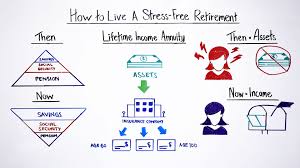Step 5: Network Through Social Media and Other Methods
|
You need to build and maintain your network even in retirement. Use networking opportunities to showcase your talents. It's OK to brag about yourself to those who might help you fulfill your retirement dreams.Include a networking strategy in your retirement plan. It may involve spending an hour a day on Twitter or LinkedIn "conversing" with people who share your skills and interests, or starting a morning meetup group at a local coffee shop to discuss ideas with other soon-to-be retirees. Such strategies will build relationships that in turn can grow your network. Also, be prepared to have clear, direct answers to such questions as "How can you use your talents and experience to contribute part time to an organization or cause?" The more socially active you are — online and offline — the more opportunities you are likely to create for yourself.
|
Step 6: Decide How Much You Want (or Need) to Work
This is the classic cost-benefit equation: Unless you are financially set for life, you will have to either stretch limited money and give up some retirement dreams or stay in the workforce (in some capacity) to help pay for those dreams. As you write down your retirement goals, take into consideration how much work is necessary.
In the previous step, you were encouraged to look at your interests. But you should consider your lifestyle and preferences, too. "Work" will mean different things to different people in retirement. Either way, to ensure you successfully reach your goals, you'll have to decide how much time you want (or need) to spend at a job. Don't wait until after retirement to make the decision. Weigh right now the pros and cons of working — including how many hours per week. The sooner you get comfortable with this decision, the more secure you will be in your retirement planning. |
Step 7: Create a Retirement Budget
Your budget needs to include:
Make sure you are diversifying your money into multiple investments, investing in things you understand and going with those investments that won't cost you a ton in fees. If you are carrying debt, make sure your budget includes monthly payments to knock it down. Once you have a budget you know you can stick to, start putting it into action. AARP's Retirement Calculator can help you take a deeper look at the numbers. |
Step 8: Find New Ways to Cut Your Expenses (Start Saving More)
Your retirement may be right around the corner or years away. Regardless, saving more now will always make you better prepared. That doesn't mean all of your extra cash has to go into savings, but now is the time to find new way to cut your expenses. Start by listing your bills and then figure out ways to trim them. Maybe you don't need 100 cable channels or to eat out three nights a week. Even cutting one movie night a month can bring you closer to your retirement goals.
Got a green thumb? Growing your own vegetables can save you money that can be socked away for retirement. Don't ignore your debt as a way to save more. Cutting your debt now will mean less worry when you retire. One strategy that works for many people: Pay off your smallest debts first, regardless of interest rate. This gives you a sense of accomplishment and empowers you to go after the bigger debts, knowing you have the willpower to eliminate debt. |
Step 9: Prepare for the Unexpected
Few of us head into retirement expecting the worst. But sometimes it happens. Prepare for the unexpected now and you won't get caught off guard later. Taking time to consider how you'd pay for — and respond to — everything from minor issues like a roof leak to serious ones like a grave illness will help you weather those storms when they come. Discuss the big issues with your family or those closest to you. How much would it cost to make major repairs? What would you want to do (or what care would you want) if there was an illness in the family?
Few of us head into retirement expecting the worst. But sometimes it happens. Prepare for the unexpected now and you won't get caught off guard later. Taking time to consider how you'd pay for — and respond to — everything from minor issues like a roof leak to serious ones like a grave illness will help you weather those storms when they come. Discuss the big issues with your family or those closest to you. How much would it cost to make major repairs? What would you want to do (or what care would you want) if there was an illness in the family?










